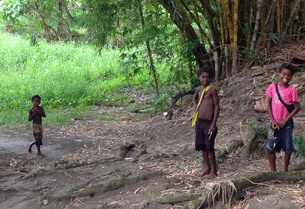Representatives included directors from USAID, the World Bank, World Vision, the Truman National Security Project, the State Departments Office of Faith-Based Communities, and the International Peace & Security Institute. Revd Andy Bowerman, Co-Director of the Anglican Alliance, and Laura Payne, researcher at Coventry University, represented the research team.
Representatives at the meeting discussed how faith communities could be empowered to be architects, not just implementers, of approaches to preventing conflict. At present a common complaint of the church is that they are used as instruments by governments and secular civil society in wider projects, rather than as agents in their own right.
Discussions at the meeting in Washington spoke of how these partnerships could overcome difficulties that arise and reconcile the different methods and approaches to work.
All participants agreed that faith groups play a significant role in preventing violent conflict, despite not always terming it ‘prevention’. Much work by faith communities to prevent conflict is under-reported and therefore under-valued, as it is seen as indirectly strengthening communities and building capacity for peace, rather than preventing conflict in direct ways.
In 2011, Anglicans across the Anglican Communion called for a better understanding – both internal and external to the Church – on the contributions that people of faith make in preventing violent conflict.
The call from grassroots consultations led to the development of ‘the faith based conflict prevention scoping project’, which is a joint research project involving the Anglican Alliance, Coventry University’s Centre for Trust, Peace & Security, and the Archbishop of Canterbury’s reconciliation ministry.
Initial research found that in preventing violent conflict – such as countering political violence and instability, or countering violent extremism – we must take a people-centered approach; we should be asking the simple question, ‘What keeps you awake at night?” The research concluded that the answer to this question was just as likely to be ‘cattle rustling’, ‘smuggling’, ‘illicit trade’ or ‘domestic violence’, as much as it could be the overarching armed institutional conflict.
One-to-one meetings followed the roundtable meeting in Washington, where Andy and Laura met with state and civil society groups who had were interested in how the research findings could impact their own work. Exciting ideas around training, capacity building and even the possibility of a documentary were discussed. Greater integration with the Anglican Communion was especially significant for institutions such as USAID, the World Bank, World Vision and the International Center for Religion & Diplomacy, as a potential for scaling up their reach and impact.
In the picture: The team visited the Solomon Islands in May last year as part of their research field work.

